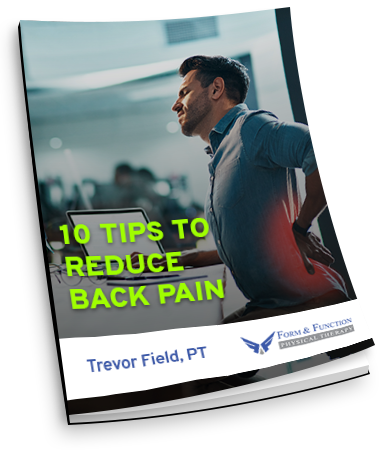Weight Loss: Fact and Fiction – What Works and What Doesn’t
Does sex really count as exercise? Should you set conservative weight loss goals of 5-10 pounds instead of 50? Does adding a little bit of exercise regularly over a long period of time really add up to significant weight loss?
A recent analysis of weight loss research by The New England Journal of Medicine, entitled Myths, Presumptions, and Facts about Obesity, attempts to answer these questions.
Some findings are surprising, some are not, and some common notions about weight loss are yet to be proven or disproven. I have my own opinions based on working with active patients looking to achieve their health and fitness goals.
We are all different. What works for some may not work for all, which is very similar to how as a physical therapist I approach my different patients’ pain and injuries.
The good news for me is that I was not surprised by the myths that are commonly held by doctors, nutritionists, and most people. And I know that some of the presumptions will turn out to be true – we just don’t have enough data to “prove” it.
Remember, the absence of evidence is not the evidence of absence. Just because something has not been studied accurately does not make it untrue.
So what are the top myths and facts about obesity and weight loss?
Myth #1: If you make small changes in your lifestyle over the long term you will lose weight.
Most of us have learned that if we just cut our calories by 100 calories a day, or increase our exercise a little bit over the long haul, we will lose weight. It’s all about the calories in or the calories out.
Sorry Mr. Newton, your laws of thermodynamics don’t apply in living systems. Biology and metabolism are more complex. If we just go with the math and burn an extra 100 calories a day by walking one mile or consume 100 calories less in 35 days, you would lose one pound (3500 calories = 1 pound).
And over five years you would lose 50 pounds. Yet, in studies they find you would lose only 10 pounds in five years. This occurs because of changes in your metabolism and calorie needs as you lose weight.
Bottom line: Big changes are needed to create big weight loss.
Myth #2: Don’t set big weight loss goals because you will become frustrated and set yourself up for failure.
The fact is that if you set your sights on big weight loss, you have a better chance of losing a significant amount of weight than if you keep your goals “realistic”. If you want to lose 50 pounds, then set that as your goal.
Studies have shown that if you don’t expect to lose a lot of weight, then you won’t! Common sense, it seems, but conventional wisdom is to keep people’s expectations low because weight loss is hard and people will get frustrated if they fail to achieve their goals. The truth is that you will only lose big if you think big.
Bottom line: Set your weight loss goals high. Don’t be realistic. If you set 10 pounds as your goal you might succeed, but if you need to lose 50 pounds you will fail. If you want or need to lose 50 or 100 pounds then name it. Own it. And you will lose it!
Myth #3: Don’t lose weight too fast or you will rebound and gain it all back.
We have been taught that if you go for the quick fix, if you go for the rapid weight loss strategy, in the long run you won’t lose as much as if you go for the slow gradual approach.
Nonsense!
Studies show that if you drop weight quickly you end up with more weight loss in the end. Mark Twain said, “The problem with common sense is that it is not too common.”
When patients make a big jump-start with weight loss, they do better and lose more weight over the long run. They learn how to own their bodies and feel empowered. The studies back this up.
Bottom line: Kick-start significant weight loss with dramatic shifts in your diet. Try things like cutting out all sugar, flour, and processed food.
Myth #4: You have to be ready to succeed and go through the “stages of behavior change”.
The science tells us that those who attempt weight loss without feeling ready still succeed. You can act into the feeling instead of waiting for the feeling to act.
Bottom line: Even if you don’t feel inspired, excited, or motivated to start taking care of yourself, just start anyway. You are just as likely to succeed as someone highly motivated.
Myth #5: Sex is good exercise.
Somewhere we all got the idea that sex was good exercise. A bout of sexual activity burns 100-300 calories for each participant. That reminds me of a young teenage patient I saw when I was a student. I asked her if she was sexually active. She said, “No, I just lie there.”
But even if you don’t just lie there, a vigorous love-making episode usually lasts about six minutes and burns about 21 calories. If you just sat and watched TV you would burn 14 calories. So find some other way to exercise or study tantric sex and make love for an hour.
Bottom line: You can’t “love” your way to weight loss. Get out of bed and start moving.
The article also had a few presumptions, which may or may not be true and still don’t have enough evidence to firmly put them in the fact category. However, a few of them I do think are crucial for weight loss.
The Value of Breakfast
In the large weight registry of people who lost 70 pounds or more and kept it off for 4 or more years, the only things they had in common were breakfast and regular exercise. It is one of the most powerful strategies. But it can’t be a muffin and a latte. The secret is a protein breakfast, which speeds metabolism and controls appetite.
Eating Fruits and Vegetables
If you eat more fruits and vegetables you will be eating less junk and creating health through hundreds of other mechanisms. In fact the only thing all nutrition experts agree on is that we should eat more fruits and vegetables.
Built Environment and Obesity
While it hasn’t been proven that more parks and sidewalks lead to a skinnier population, we do know that your immediate environment plays a big role in your health. Dan Buettner did an experiment in Albert Lea, MN where he implemented changes in the environment that led to significant weight loss and health.
Kids lost 10 percent of their body weight after eating in classrooms and hallways was outlawed. And the town’s population lost a total of 12,000 pounds by everyone agreeing to eat their meals using 10 inch plates and having grocers put healthy foods at the check-out counters. Your environment does matter.
The good news from this article is we can lose weight, but we have to set big goals, think big, act big, and we will get big results!
Stay in the game,
Trevor Field
“The Greatest Promotion Ever” called so because we are offering to all new and existing patients a crazy discount of a $35 initial evaluation (normally priced $175).
Let everyone you know about this great opportunity to get anything that’s been nagging at you to get checked out. Hurry to schedule because this promotion will only last till the end of the month and slots are limited (in past years of doing this promotion we fill up the month’s schedule within the first week).
CALL NOW! (888) 619-2885 or Schedule Here
Hey have you listened to our latest podcast episode?
Check it out below
Article adapted from:
“Weight Loss: Fact and Fiction – What Works and What Doesn’t” Dr. Mark Hyman, 18 Oct. 2019, https://drhyman.com/blog/2016/10/26/.
Another article you might enjoy:
If you aren’t sure where to start or even if physical therapy might be right for you, let us set you up with a FREE Phone Consultation and speak directly with a physical therapist to get all of your questions answered!
Powered by RedCircle






